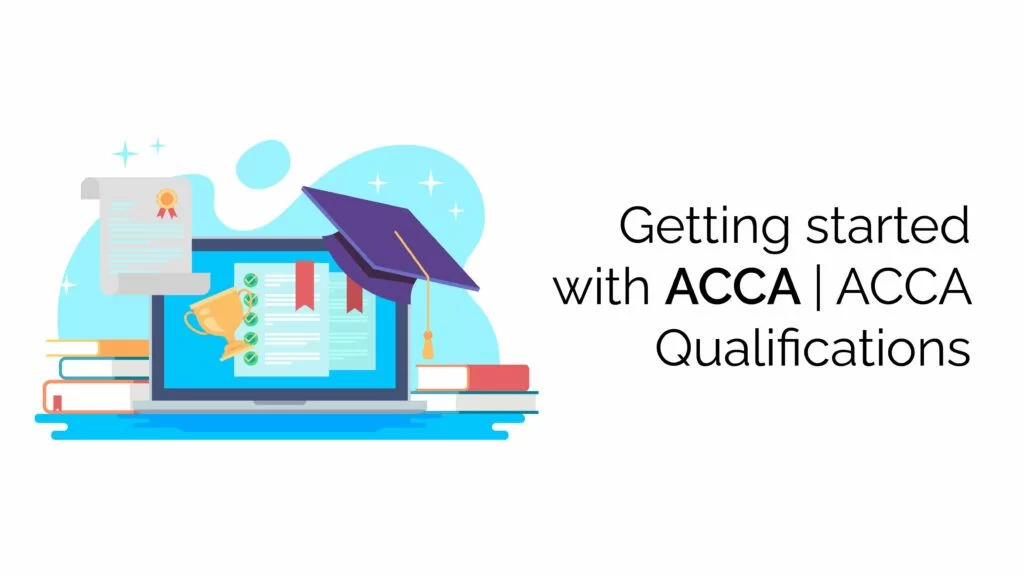ACCA is the favourite accountancy qualification of aspiring finance professionals. It enhances their skills and teaches knowledge and value to them, eventually leading to the betterment of the firm in which they work. ACCA qualification plays a vital role in your practical experience. ACCA course gives special priority to ethics, governance and professional values. The skills developed through this course are highly beneficial as you succeed in your career with regulation, legislation and a strengthened code of conduct. It also increases your professionalism and ethics in accounting. Your professionalism and ethical value get tested as you move to the highest level of the ACCA qualification.
To become an ACCA member, you have to pass 13 exams, out of which nine exams are eligible for exemption. You must also possess a minimum of three years of work experience and should have clear ethics and professional skill module(EPSM).
ACCA Qualification – Eligibility Criteria
Your eligibility for the ACCA exam largely depends on your previous educational qualification.
ACCA Minimum eligibility criteria
The minimum educational qualification for ACCA is plus two with a pass percentage of 65% in Accountancy or Mathematics and 50% in other subjects. Students who don’t meet this criterion still have the chance to take the ACCA course. They can enrol in the FIA or foundation in accountancy course and get an entry to the FIA course.
ACCA Qualification for Graduates
Commerce or accountancy degree holders who graduated from an ACCA recognised institute will receive exemptions of nine papers at the fundamental level. They can move directly to the professional level without writing those nine exams. Also, students get exemptions based on their previous academic qualifications. ACCA analyses their knowledge and skill sets and permits entry for the respective level in the ACCA exam.
To get exemptions, students can utilise the exemption calculator available on the official website of ACCA(www.accaglobal.com), or they can send an email to [email protected] containing all their mark sheets and relevant certificates.

ACCA Exemptions
After analysing their previous academic performance, students are eligible for exemptions of up to nine papers in the fundamental level of the ACCA exam. You will not get any exemptions at the professional level. Moreover, you will receive exemptions only if your academic qualification matches the ACCA syllabus, i.e. you must complete your education from an ACCA accredited institute to get exemptions. Otherwise, you will have to start from scratch.
ACCA Exams
The ACCA exam syllabus divides itself into the Fundamental Level and Strategic Professional. The Fundamental Level gets divided into two- Applied Knowledge Level and Applied Skills Level. Similarly, the Strategic Professional Level has two modules- essential and optional.
The Applied Knowledge level exam, popularly known as the ‘on-demand computer-based examination’, allows the student to appear for the exam any time of the year. Also, there are approved CBE centres worldwide to conduct on-demand ACCA exams.
The Applied Skills and Strategic Professional exams, on the other hand, can be given every quarter of the year. These exams are also known as session CBE or session computer-based exams. Exams are likely to happen in March, June, September and December.
The topics covered under Applied Knowledge are Business & Accounting(BA), Financial Accounting(FA) and Management Accounting(MA). The Applied Skills covers topics like Corporate and Business Law(LW), Performance Management(PM), Taxation(TX), Financial Reporting(FR), Audit and Assurance(AA) and Financial Management(FM).
Ethics and professional skill module(EPSM)
ACCA designed EPSM intending to make the students industry-ready to face all the challenges out there in the real world. The interactive module allows the students to deal with real-life business situations, thereby developing advanced ethical, digital and professional skills that every employer is seeking nowadays. EPSM module helps the students to turn out into confident finance professionals.
The students must complete the EPSM module to become certified ACCA members. After completing the Applied Skills, it is better to choose the EPSM module before moving on to the Strategic Professional Level. There are ten units in this end, followed by an assessment at the end. Assessments would analyse how much you have learned in this module. You can take the tests only after completing the previous units.
The professional level
There are two categories at the professional level- essentials and options. The professional level module is similar to the module for post-graduation degrees. This module focuses on enhancing the student’s already acquired technical skills and gives them better exposure to advanced professional skills, values and techniques mainly used by professional accountants who take up the role of consultant or advisory at a senior executive level. You have to clear the two papers in the essential module. The options module comprises four papers, of which you can choose two. You can choose the papers depending upon your interests.
The topics covered under the essential module are Strategic Business Leader(SBL) and Strategic Business Reporting(SBR). Optional module topics are Advanced Financial Management(AFM), Advanced Performance Management(APM), Advanced Taxation(ATX) and Advanced Audit and Assurance(AAA).
More and more students are taking ACCA courses due to its huge demand. It is better to enrol for the ACCA course from a recognised institute. Finprov Learning, India’s number one accounts education provider, is offering an ACCA course covering all the abovementioned topics. Be a Finprovian and ease your journey of becoming a global chartered accountant.
Please download our ebook and clear all your doubts if you have any queries regarding our ACCA course.










